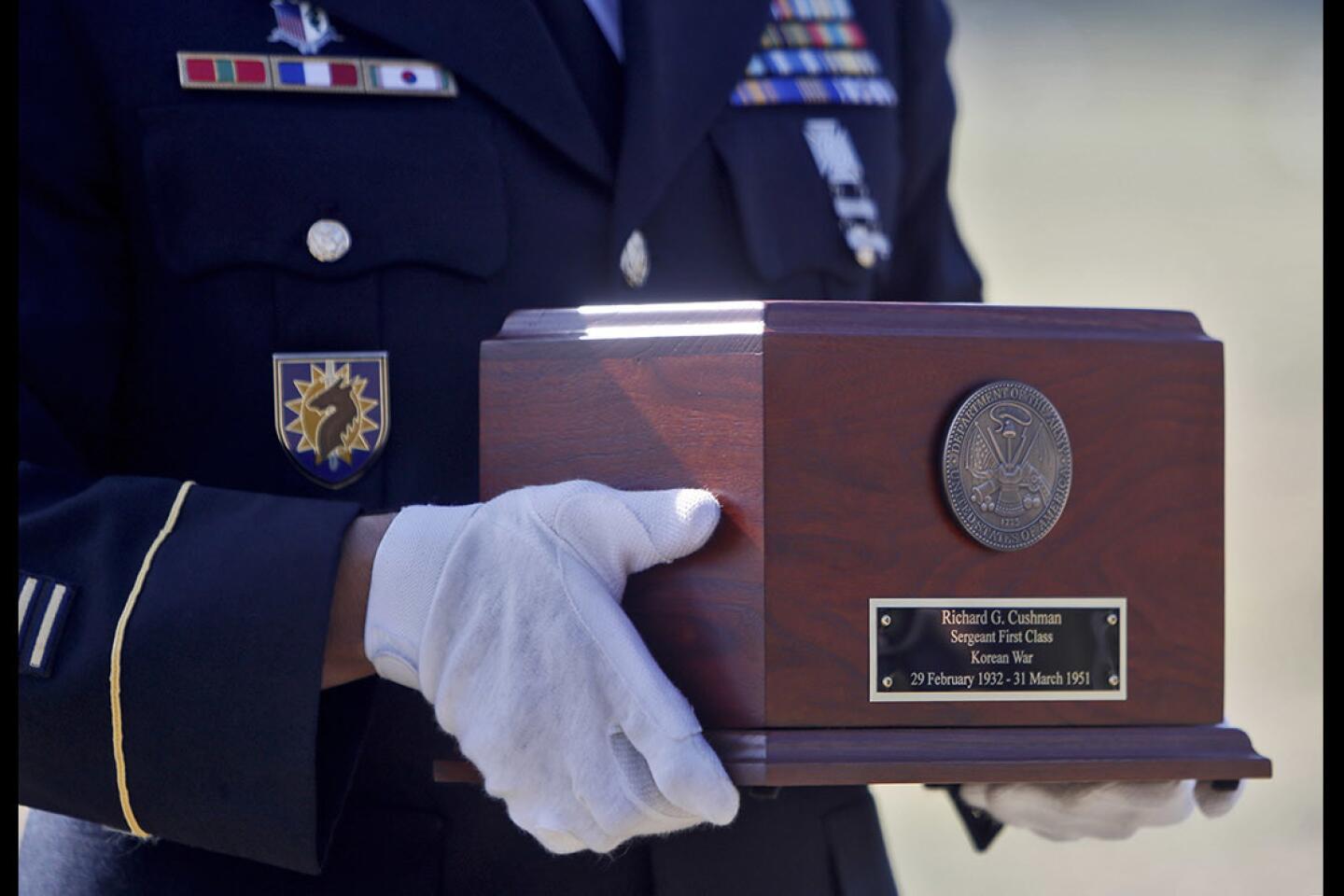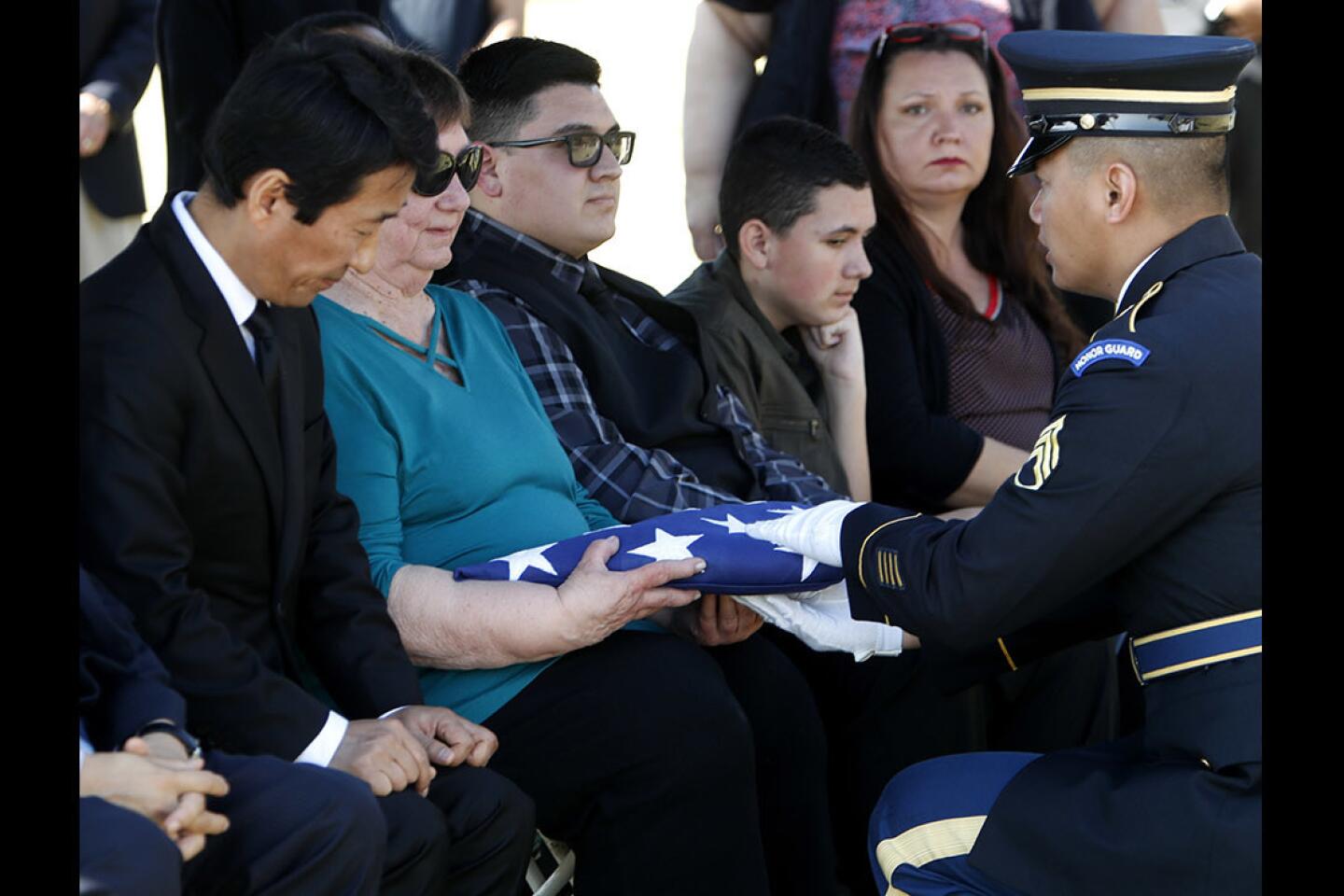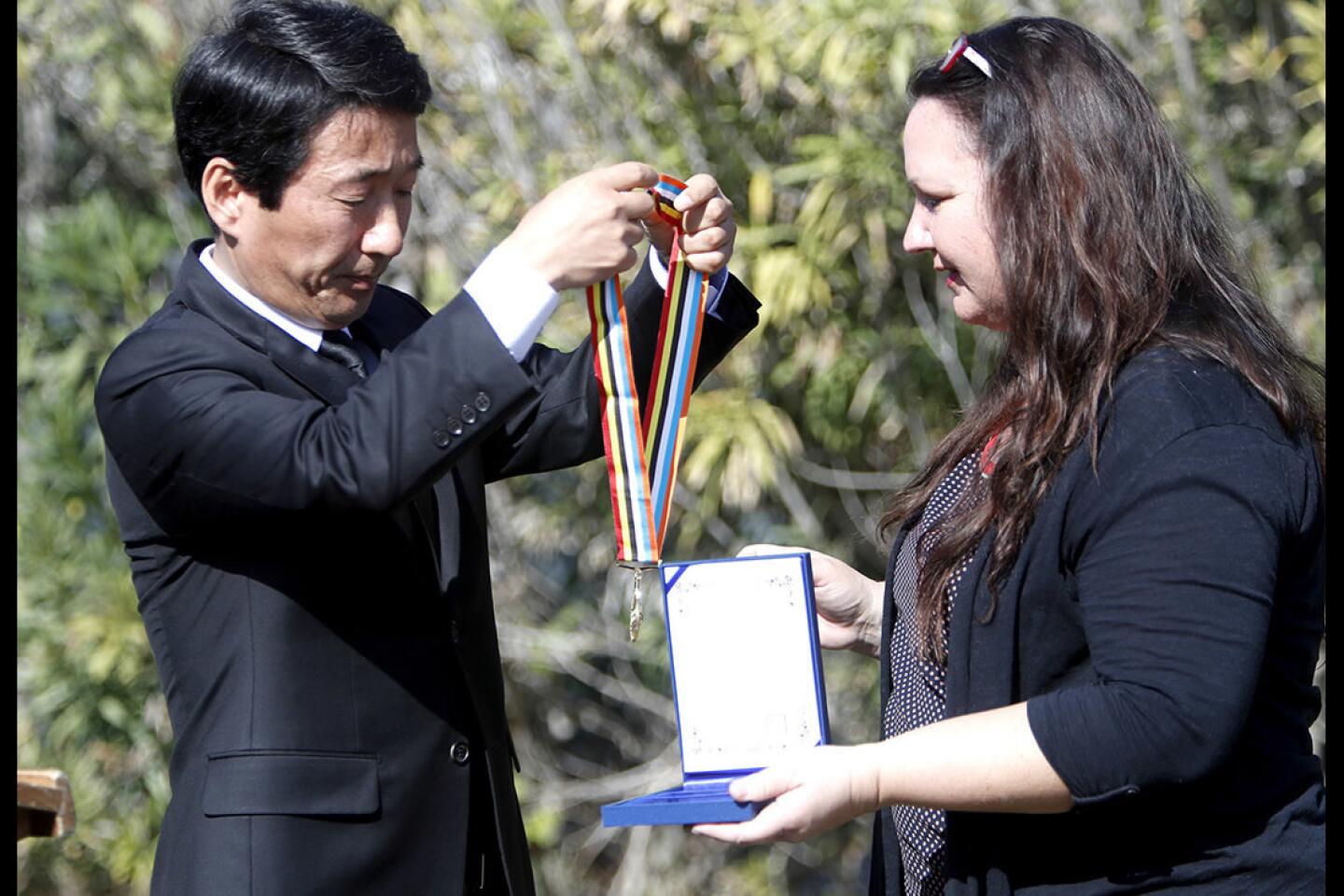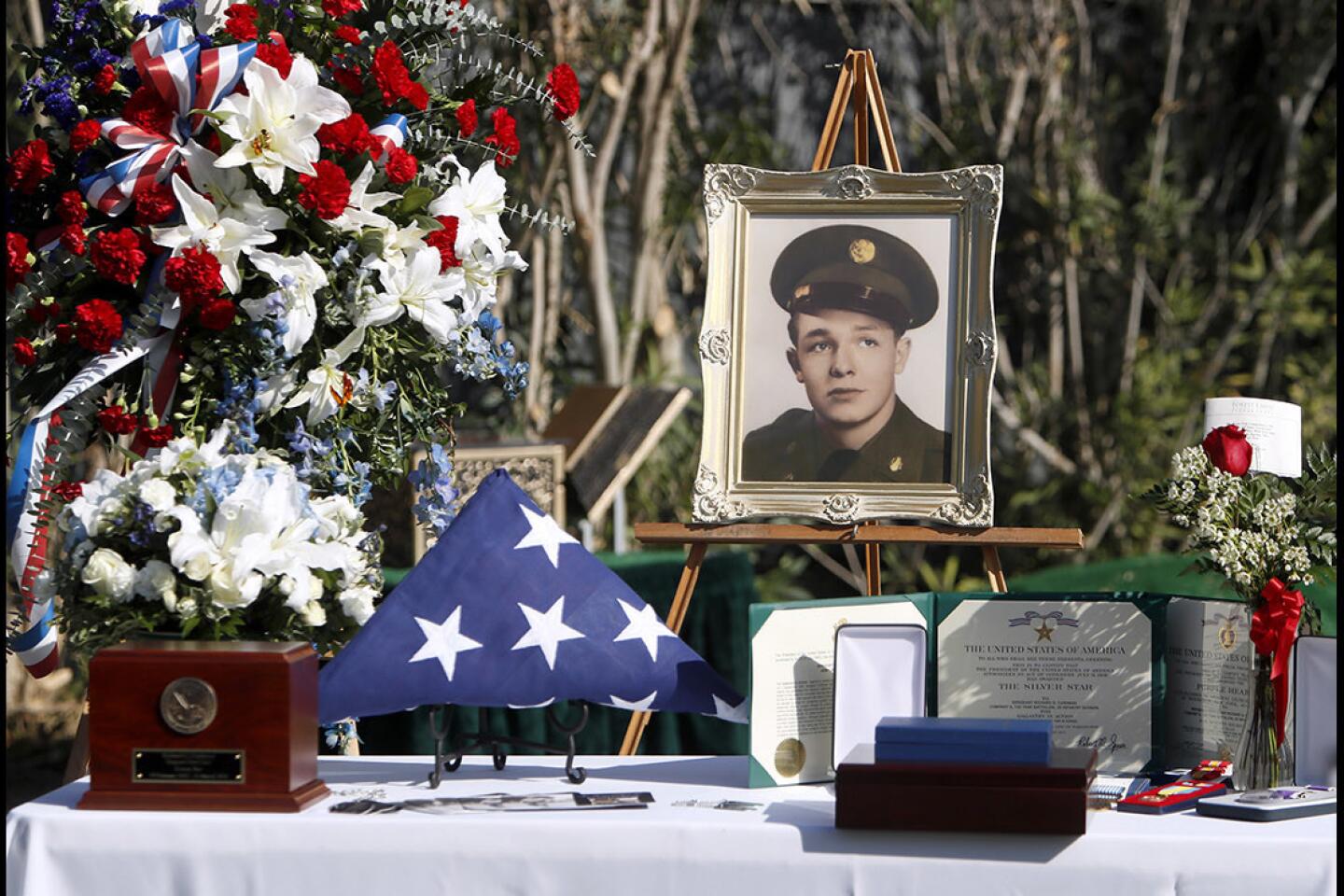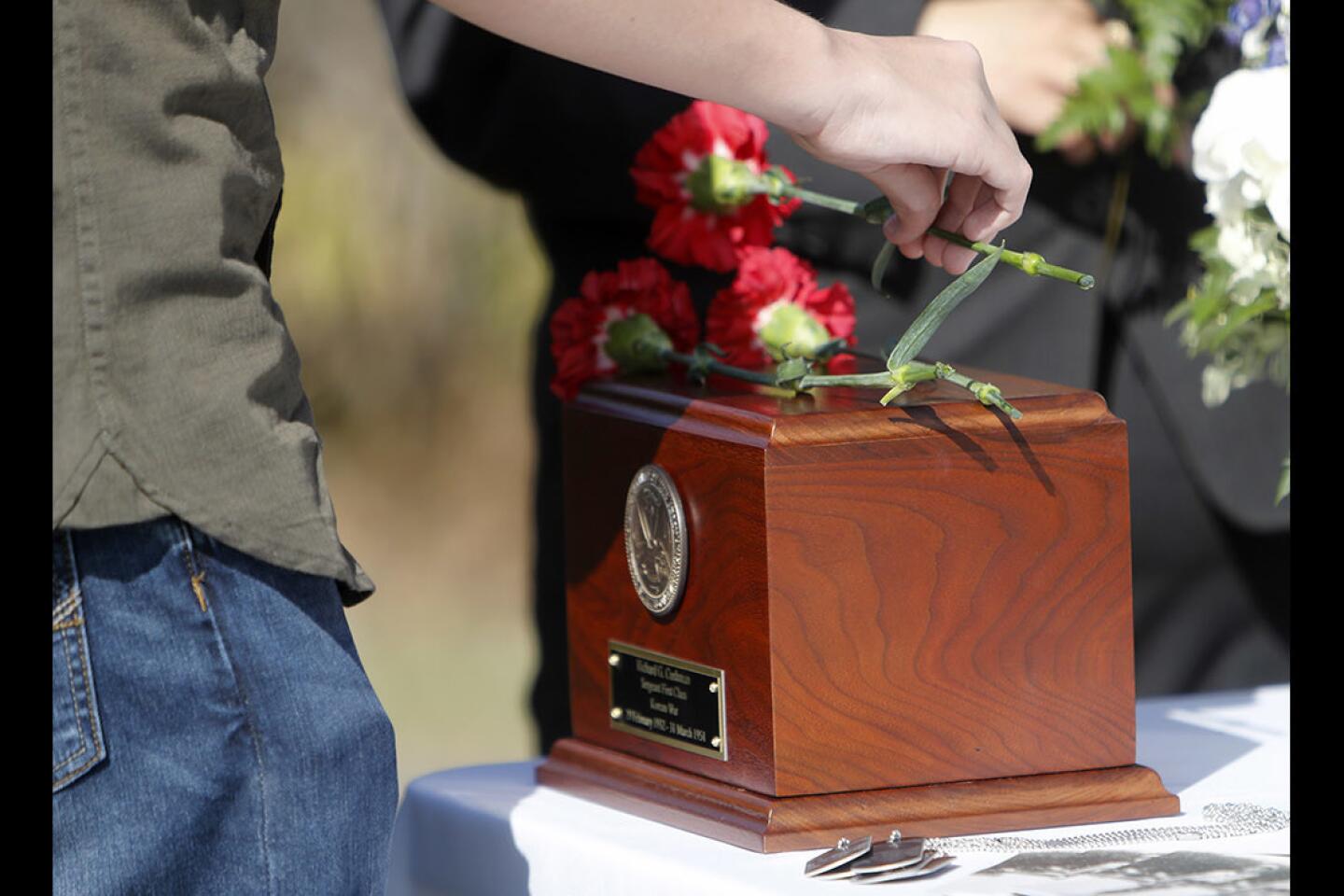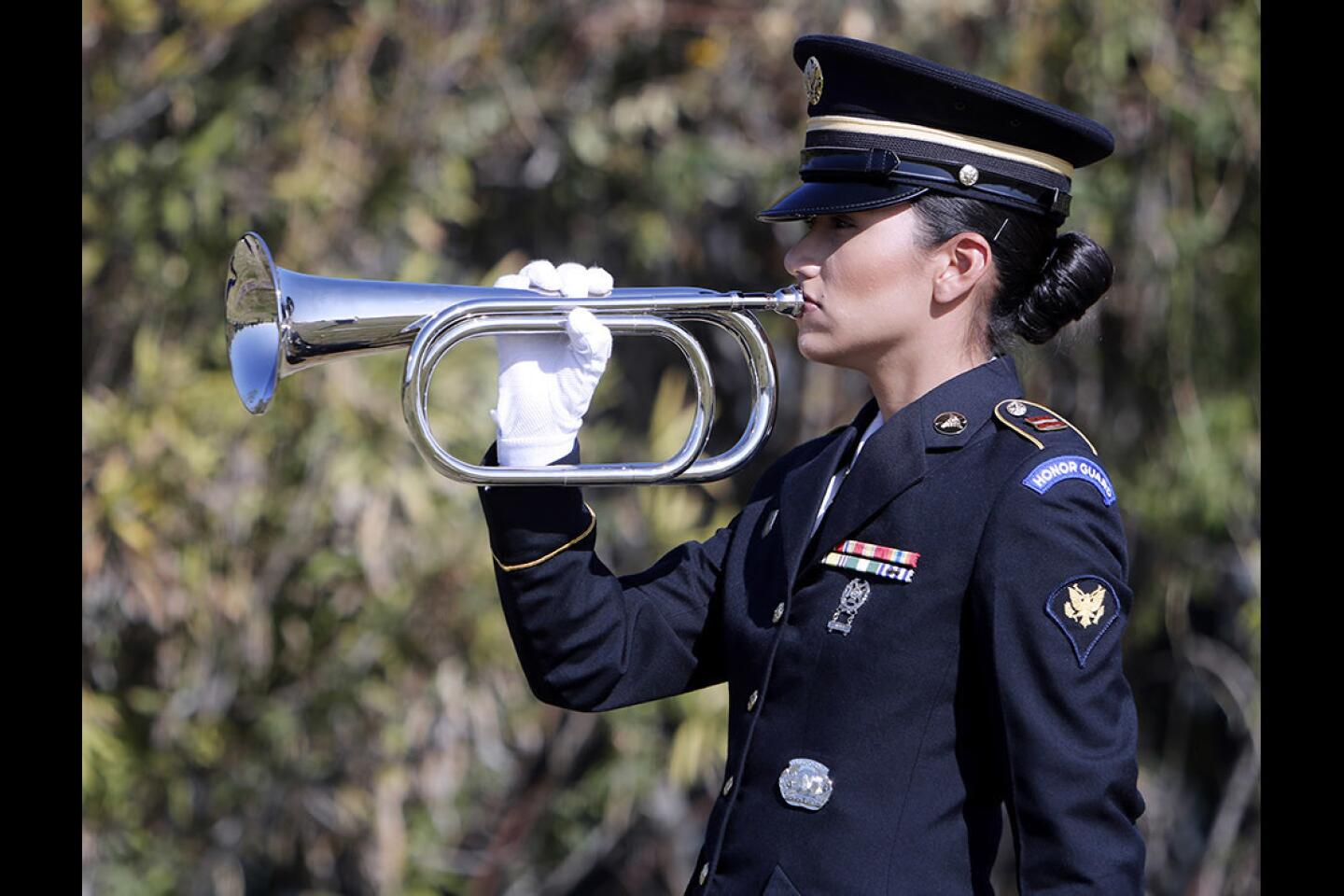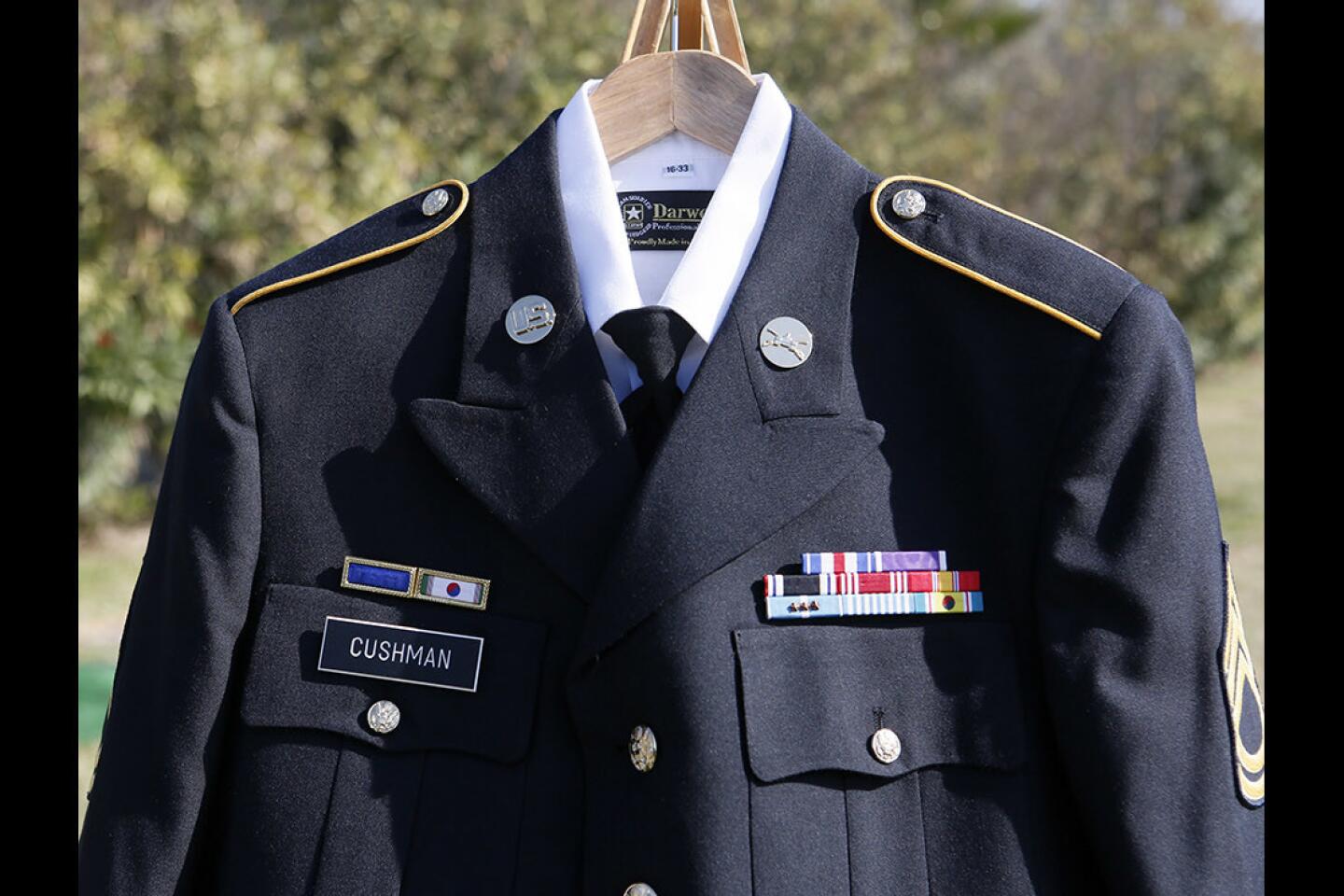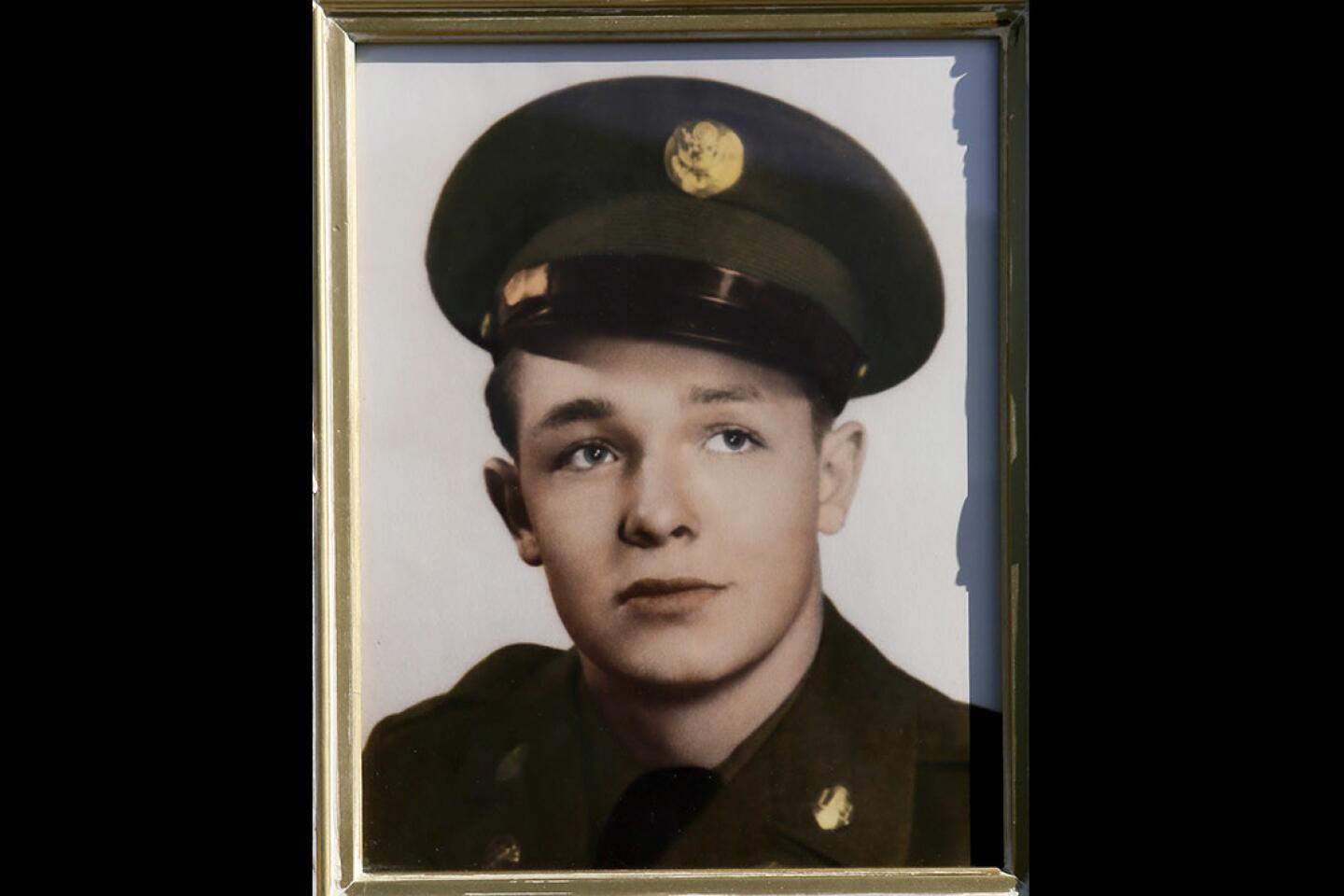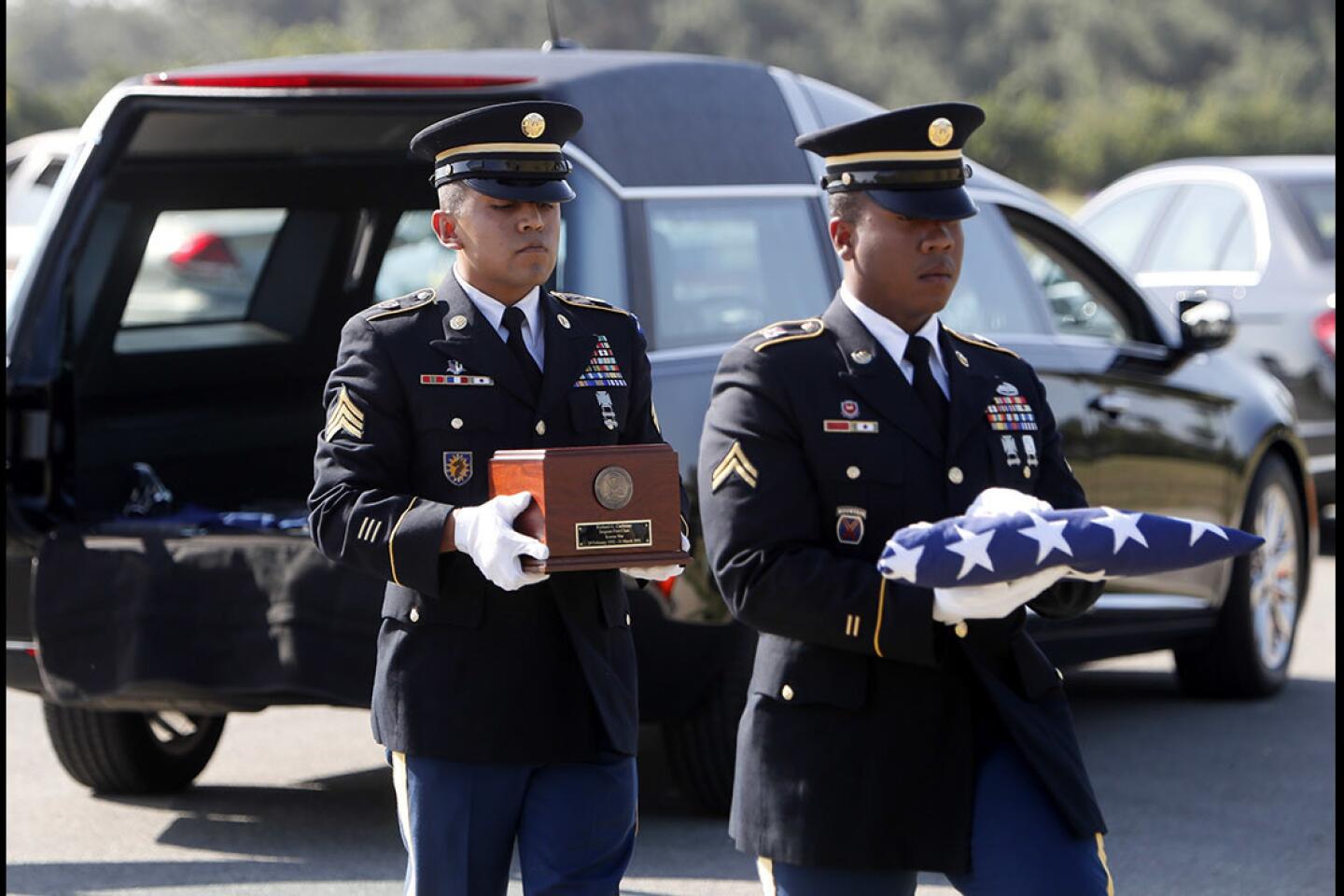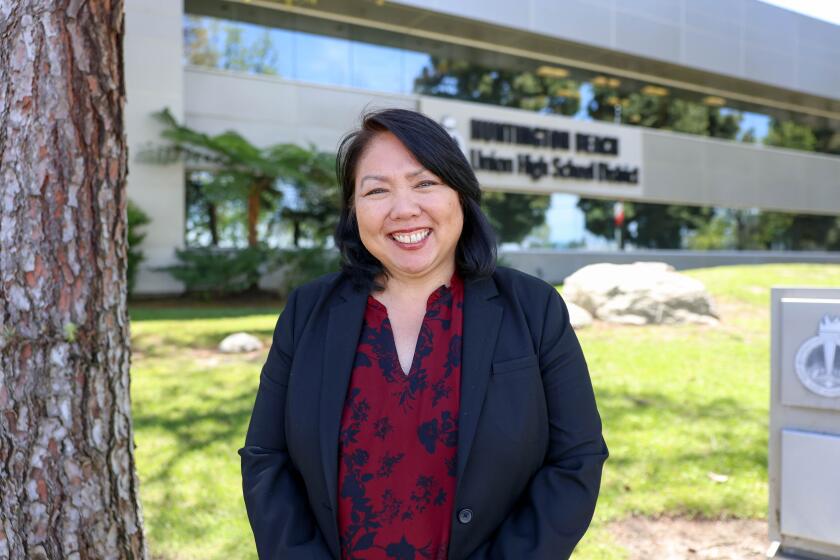Remains of missing Korean War soldier are returned to family for burial
Army Sgt. 1st Class Richard G. Cushman was serving his country in the Korean War when he was reported missing in action on Dec. 5, 1950.
While he was declared deceased by the Army in 1951, Cushman’s remains hadn’t been found.
Six decades later, there finally is closure.
Thanks to the unrelenting efforts of a specialized agency, advanced DNA analysis, the efforts of three Korean citizens and a stroke of luck, Cushman’s remains were found and taken home.
A recipient of multiple commendations, including a Purple Heart, Silver Star, Bronze Star and Prisoner of War Medal, Cushman was laid to rest with full military honors on Feb. 4 at Forest Lawn Cemetery in Cypress.
He was buried alongside his younger brother John, who had died years earlier.
“This is a celebration of two homecomings,” said Pastor Bob Snyder, who presided over the service. “And the celebration of his homecoming to be with his brother and his mother and father in eternity, and his homecoming that he is now with us in beloved America.”
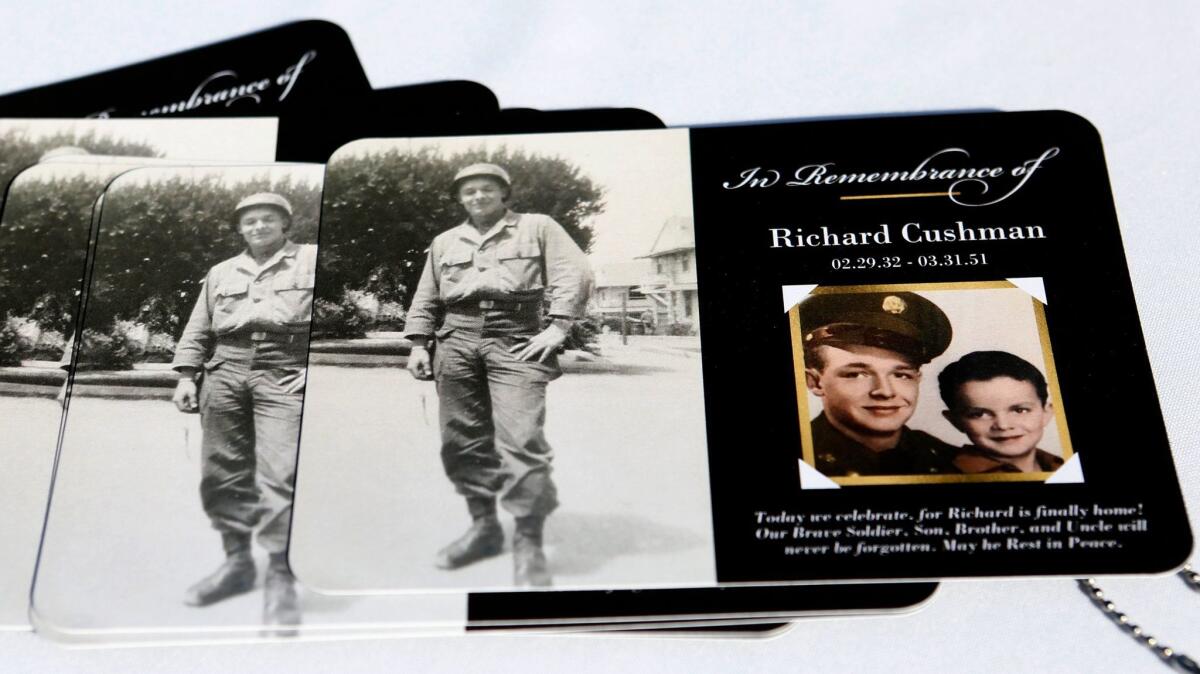
Cushman was born in Springville, Utah, on Feb. 29, 1932.
He was raised by his father, Ralph, and stepmother, Juanita.
After graduating from high school, Cushman enlisted in the U.S. Army and quickly advanced to the rank of sergeant first class.
He was on the front lines for some of the most intense fighting of the Korean War that began June 25, 1950, and ended July 27, 1953.
On Nov. 30, 1950, while in the village of Kunu-ri, Cushman’s company and an infantry platoon received orders to destroy a roadblock and eliminate enemy troops.
The Chinese People’s Volunteer Forces attacked the unit and by the end of battle, Cushman was missing.
While he was not named as a prisoner of war on lists provided by the Korean People’s Army after the war, two returning American prisoners reported that Cushman had died of malnutrition while being held by the Chinese People’s Volunteer Forces.
He was declared deceased by U.S. Army as of March 31, 1951.
Cushman’s father and stepmother kept their son’s memory alive with a makeshift memorial of their son’s photos, medals and other mementos.
“Not only did they not forget him, they kept his memory alive to us,” said his niece Wendy Griffin. “They spoke of him. We would beg to hear stories about him — about him being a hero, about him being a mischievous little boy. Even though he wasn’t physically with us, I still felt like I had an Uncle Richard. I still feel that way.”
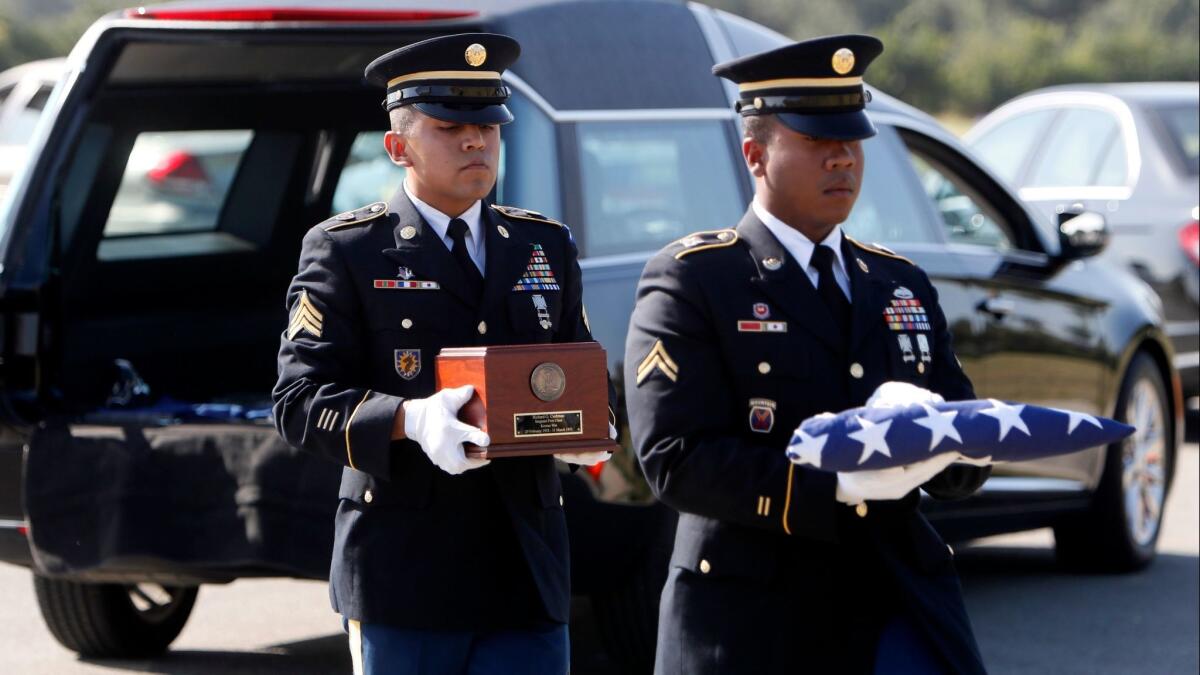
Based on information provided by three Korean witnesses, a joint U.S. and Korean People’s Army recovery team conducted a recovery operation at a site in the Ung Bong Village in North Korea in 2002.
The site was excavated and possible human remains were recovered, along with personal effects and other items, all of which were sent to the Department of Defense POW/MIA Accounting Agency, whose mission is to account for missing Americans from past conflicts.
Today, 7,712 Americans remain unaccounted for from the Korean War, according to the Department of Defense POW/MIA Accounting Agency.
By this time, DNA testing was being used to identify the remains of military personnel, but Cushman’s parents and his younger brother John were deceased.
The accounting agency located Cushman’s cousin from his biological mother’s family, who submitted a DNA sample.
Using mitochondrial DNA analysis, anthropological analysis and circumstantial evidence, Cushman was positively identified in early 2017.
His name is recorded at the Courts of the Missing at the National Memorial Cemetery of the Pacific in Honolulu, along with the others who are missing from the Korean War. A rosette will be placed next to his name to indicate he has been accounted for.
But finding Cushman’s next of kin had become an ordeal until a distant relative, who had been practicing genealogy, contacted Cushman’s niece Tera Barrera, of Lakewood.
“We were shocked and amazed and excited,” Barrera said at her uncle’s funeral. “We never envisioned this.”
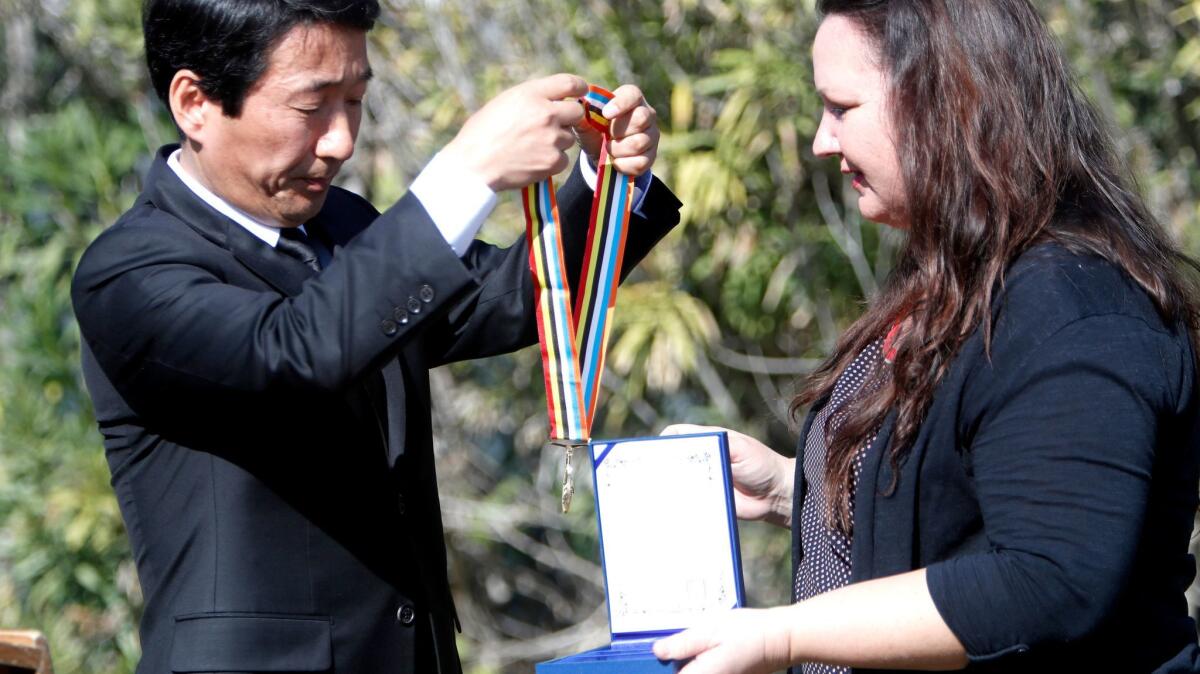
Barrera contacted Cushman’s sister-in-law, Kathy Cushman, who reached out to the Army, and after months of paperwork, arrangements were made to have Cushman interred next to his brother at Forest Lawn in Cypress.
“He had been over there for so many years alone,” Kathy Cushman said. “I thought it was important for him to be with his brother.”
Vietnam veteran Tom Lasser, a retired commander of the Los Alamitos Army Airfield and advocate for military personnel who are missing in action, was among veterans who attended Cushman’s funeral
“Never leave a fallen comrade behind — that is the creed of American fighting men and women,” Lasser said. “The United States is the only country that has a dedicated office that seeks out missing in action, locates them, identifies them and brings them back to this country. Sometimes it takes 68 years.”
Lou Ponsi is a contributor to TimesOC.
All the latest on Orange County from Orange County.
Get our free TimesOC newsletter.
You may occasionally receive promotional content from the Daily Pilot.
